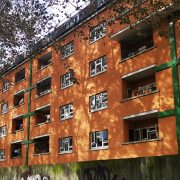Pregnant women belonging to Hackney’s African and Asian communities have been urged to stop taking a potentially poisonous supplement that contains lead and arsenic.
Certain communities in Hackney and other parts of London use Calabash chalk as an antidote to morning sickness.
Environmental health officers have seized a quantity of Calabash chalk, from a building in Hackney, where it is believed to be on sale for consumption and the PHE have now issued a London-wide health alert due to concern that the product may be on sale in a number of other London locations.
The chalk is traditionally consumed by women from Nigeria and West African communities, usually imported from West Africa and is available as a powder or moulded block.
Also known as Argile, La Craie, Mabele, Nzu or Shiley, Calabash chalk has been seized by Environmental Health officers in London, because tests have shown elevated levels of lead and arsenic.
These heavy metals are toxic to humans, and lead exposure during pregnancy can cause reduced birth weights, impaired neurodevelopment and impaired intrauterine growth.
The Food Standards Agency (FSA) warns that pregnant or nursing mothers should not eat these products as a child’s growing body absorbs lead easily. Young children do not have the capacity to excrete heavy metals as efficiently as adults.
For pregnant women, eating this product may result in harmful effects to their unborn baby, which is particularly at risk of effects on the nervous system.
Dr Diane Benford, of the FSA, said: “We are strongly advising that people stop eating Calabash chalk, particularly pregnant women and breast feeding mums, who appear to be its main consumers. They are particularly relevant, because the risks from exposure to lead are greatest for the unborn and developing child.”
Dr Yvonne Doyle, regional director for Public Health England (PHE), said: “If you are suffering from severe morning sickness during pregnancy you should speak to your GP or midwife who will be able to advise you on safe treatment. We strongly advise against taking any medicinal or remedy product while pregnant without talking to your GP or health visitor about the health risks.”
Officers from the London Borough of Greenwich alerted the FSA to the problem after local tests found high levels of lead in samples of calabash chalk. The FSA has also said it will talk to the European Commission about the possibility of banning the sale of Calabash chalk across the EU.
For further information, please see: Public Health England, Calabash Chalk leaflet.





